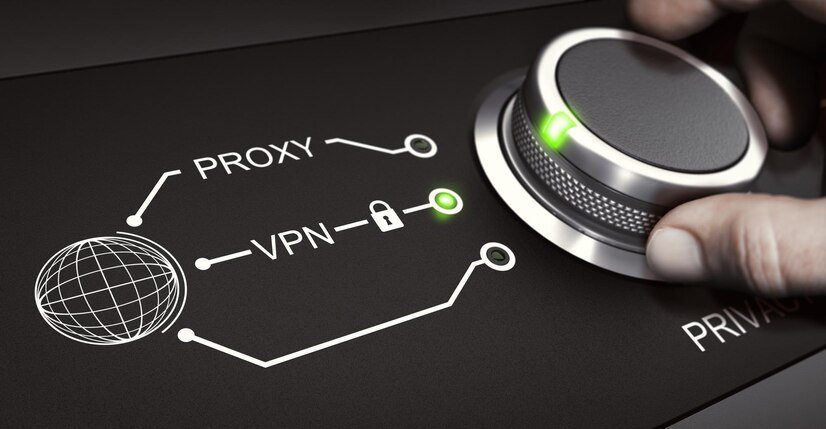
In an increasingly digital world, every device we use is assigned a unique identifier—a string of numbers known as a who owns IP address. But have you ever paused to ponder who owns these essential elements of the internet? The ownership of IP addresses is a complex puzzle that intertwines technology, economics, and law. As our reliance on the internet grows, so does the importance of understanding this intricate subject.
Whether you’re a tech enthusiast or simply curious about how the internet functions behind the scenes, unraveling the mystery surrounding IP address ownership holds significant relevance for everyone. Join us as we delve into this fascinating topic and uncover who really owns those vital numbers that connect us all.
Understanding IP Addresses
IP addresses, or Internet Protocol addresses, are the backbone of online communication. They serve as unique identifiers for devices connected to a network, enabling data to be sent and received accurately.
Think of an IP address like a home address for your computer or smartphone. Just as mail needs a specific location to reach its destination, digital packets require an exact IP address to find their way through the vast expanse of the internet.
There are two main types: IPv4 and IPv6. IPv4 consists of four sets of numbers separated by periods—like 192.168.1.1—while IPv6 is more complex and designed to accommodate the growing number of devices online.
Understanding how these addresses work is crucial in navigating today’s interconnected landscape where every click counts in our digital interactions.
Who Owns IP Addresses?
The ownership of IP addresses is a complex matter. These unique identifiers are essential for devices to communicate over the internet. But who really owns them?
Primarily, IP addresses are allocated by regional Internet registries (RIRs). There are five RIRs worldwide, and they distribute these addresses to Internet Service Providers (ISPs) and organizations.
Once an ISP receives a block of IP addresses, it then assigns smaller chunks to its customers. However, this doesn’t mean that ISPs own those addresses outright; they merely lease them.
Businesses can also purchase their own blocks directly from RIRs or through brokers. This leads to a mix of ownership structures across the digital landscape.
Understanding who owns an IP address involves navigating layers of allocation and assignment made by various entities in the internet ecosystem. Each layer adds complexity to the ownership question.
The Role of Internet Service Providers (ISPs)
Internet Service Providers (ISPs) play a pivotal role in the landscape of IP address management. They are responsible for allocating and managing blocks of IP addresses to individual users and businesses. This allocation is essential for establishing connections between devices on the internet.
When you sign up for internet service, your ISP assigns an IP address to your modem or router. This unique identifier allows other devices on the network to identify and communicate with each other effectively.
Moreover, ISPs track usage patterns, which helps them manage their networks better while ensuring that resources are allocated efficiently based on demand. Some ISPs even offer dynamic IP addressing, where a user’s IP can change periodically as they connect to the network.
As gatekeepers of this digital world, ISPs have significant influence over how we experience online connectivity and access information.
The Debate on IP Address Ownership
The debate on who owns IP address is more complex than it may seem. On one hand, many argue that IP addresses should be treated as property. This perspective sees them as valuable assets that can be bought, sold, or traded.
On the other hand, some contend that since these addresses are assigned by organizations like ARIN and RIPE NCC, they remain under the jurisdiction of these entities. The argument follows that ownership isn’t about possession but rather about usage rights.
This creates a gray area in understanding digital real estate. As businesses expand their online presence, questions arise about how to protect what seems to belong to them versus what’s regulated by governing bodies.
Moreover, technological advancements complicate this further. With IPv6 implementation and increasing demands for addresses, the conversation isn’t just theoretical; it’s becoming urgent and essential for stakeholders across the globe.
Legal Issues Surrounding IP Address Ownership
Legal issues surrounding IP address ownership can be complex and often murky. While everyone uses them, the question of who truly owns an IP address is not straightforward.
In many cases, organizations lease their IP addresses from Internet Service Providers (ISPs). This arrangement raises questions about rights and usage duration. If a company goes out of business or changes ISPs, what happens to its allocated addresses?
Additionally, there are significant legal implications concerning cybercrimes linked to specific IPs. Law enforcement agencies may trace criminal activity back to an address but cannot easily pinpoint who was using it at any given time.
The lack of clear ownership guidelines complicates matters further. Courts have seen disputes over whether companies can claim ownership when they only lease these unique identifiers. As digital landscapes evolve, so too will the legal frameworks governing them.
Possible Solutions to the Ownership Dilemma
One potential solution to the ownership dilemma involves increased transparency in the allocation of IP addresses. By establishing a public registry, stakeholders can better understand who owns which address and how it is being used. This could help mitigate disputes over ownership claims.
Another approach is implementing blockchain technology. A decentralized ledger could securely track IP address assignments, making the process more verifiable and less susceptible to fraud or mismanagement.
Encouraging collaboration among ISPs also plays a crucial role. They can pool resources to create shared guidelines for managing IP addresses more effectively, leading to streamlined policies that serve all users.
Fostering international agreements may provide a unified framework for addressing conflicts related to IP ownership across borders. This would enhance cooperation and establish clearer norms on usage rights globally.
Impact on Cybersecurity and Privacy
The ownership of IP addresses plays a significant role in cybersecurity and privacy. When we talk about who owns an IP address, it raises questions about accountability.
If malicious activity emanates from a specific IP address, identifying the owner is crucial. However, due to dynamic allocation by ISPs, pinpointing the actual user can be challenging. This obfuscation sometimes allows cybercriminals to operate with relative anonymity.
Privacy is another concern. As organizations track IP addresses for various reasons—like targeted advertising or security measures—individual users may feel their online behavior is being monitored without consent.
Moreover, data breaches often expose countless IP addresses linked to personal information. The more uncertain ownership becomes, the harder it is to protect sensitive data effectively. Understanding these dynamics helps emphasize why clarity around IP address ownership matters for both cybersecurity and individual privacy rights.
Types of IP Addresses
IP addresses come in various types, each serving a specific purpose. The most common are IPv4 and IPv6.
IPv4 consists of four sets of numbers, ranging from 0 to 255. This format allows for about 4 billion unique addresses, but the rapid growth of the internet has led to exhaustion issues.
To address this limitation, IPv6 was introduced. It features a much larger address space with eight groups of hexadecimal digits. This expansion accommodates an almost limitless number of devices.
There are also public and private IP addresses. Public IPs connect directly to the internet, while private ones operate within local networks—for example, your home or office Wi-Fi.
Dynamic and static IP addresses add another layer of complexity. Dynamic IPs change periodically through DHCP (Dynamic Host Configuration Protocol), whereas static ones remain constant over time.
These distinctions play crucial roles in how data is routed online and how devices communicate with one another.
Controversies and Challenges in IP Address Ownership
The ownership of IP addresses is fraught with controversies that can complicate digital interactions. One major issue arises when multiple entities claim rights to the same address space, leading to disputes over control and accessibility.
Another challenge stems from the dynamic nature of IP allocation. As addresses are reassigned or recycled, tracking their current ownership becomes increasingly difficult. This lack of clarity can create complications for businesses trying to secure a stable online presence.
Geopolitical tensions also play a role in the debate around IP ownership. Different countries have varying regulations and policies regarding internet governance, which can lead to conflicts over who has rightful access to certain blocks of addresses.
Additionally, as more devices connect to the internet, demand for IPs surges. This scarcity exacerbates existing issues related to distribution and management, raising further questions about fairness and equity in ownership practices.
Regulations and Laws Surrounding IP Address Ownership
Regulations and laws concerning IP address ownership are complex and vary by jurisdiction. Many countries follow guidelines set forth by international organizations like the Internet Assigned Numbers Authority (IANA) and the American Registry for Internet Numbers (ARIN).
These organizations allocate blocks of IP addresses to regional registries, which then distribute them to ISPs. This creates a tiered system of ownership that complicates direct claims on specific addresses.
Legal battles have emerged over who holds rights to certain ranges, particularly when companies merge or change hands. Courts often have to navigate existing contracts, local regulations, and even aspects of digital privacy law.
Moreover, as the internet evolves, policymakers continue to grapple with new challenges in this area. The rapid growth of technology means that frameworks can quickly become outdated or misaligned with current practices in cyberspace management.
The Future of IP Address Ownership
The future of IP address ownership is poised for transformation. As the internet continues to expand, the demand for unique identifiers grows. IPv6 adoption is increasing, promising a more abundant supply of addresses.
With this shift comes questions about who will claim these new resources. Businesses may lease or rent IP addresses instead of owning them outright. This change could alter how we think about digital property rights.
Moreover, as organizations turn towards cloud services and virtual networks, traditional notions of ownership are being challenged. Technologies like blockchain might provide innovative solutions for tracking and managing IP address allocation.
Regulatory frameworks will likely evolve too, ensuring fairness in access while addressing cybersecurity concerns. The landscape ahead remains dynamic with possibilities that can redefine our understanding of online identity and resource management in the digital age.
Conclusion
The topic of who owns IP addresses is complex and evolving. As the internet continues to expand, so does the importance of understanding this ownership structure. With multiple stakeholders involved—from individual users to large corporations—navigating the layers of ownership can be challenging.
Legal frameworks are constantly adapting to address emerging issues in cybersecurity and privacy related to IP usage. The role of ISPs remains crucial as they manage allocations and ensure connectivity for users worldwide.
As technology advances, new solutions may arise that provide clearer definitions around ownership rights. This could lead to a more structured approach that benefits all parties involved.
The future will likely see ongoing debates regarding regulations and standards governing IP addresses. Staying informed about these changes is vital for anyone engaged in online activities or concerned with digital security.
Understanding who owns an IP address matters not just from a technical standpoint but also for ensuring accountability in cyberspace.
RELATED POSTS
View all


